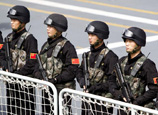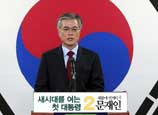
Exports in November grew 2.9 percent year-on-year, decelerating from the 11.6 percent increase in October, while imports were flat.
Another central bank survey showed that confidence in the employment situation among 20,000 urban households in 50 cities rose 1.9 points and reached a three-year high.
But inflation expectations among households for the next quarter have risen, after a rebound in the consumer price index - a main gauge of inflation - in November.
Almost 42 percent of those surveyed believe that consumer prices will rise in the next quarter, 4.7 percentage points higher than in the previous three months.
However, the proportion of households who believe that prices are generally "too high to accept" decreased to 59 percent from nearly 61 percent in the previous quarter.
China's CPI rose 2 percent year-on-year in November, the first increase since August. In October, the annual inflation rate stood at 1.7 percent, the lowest in 33 months.
Li Yang, deputy head of the Chinese Academy of Social Sciences, a government think tank, said on Tuesday that although CPI fluctuations might influence policy decisions by the central bank, monetary authorities now pay more attention to the overall prices, which also include property prices.
Nearly 20 percent of bankers foresee further monetary policy loosening next quarter, up 14 percentage points from last quarter, while 70 percent believe that the monetary stance will remain "appropriate".















 Sex case leads to warnings about apps on smartphones
Sex case leads to warnings about apps on smartphones


![]()
